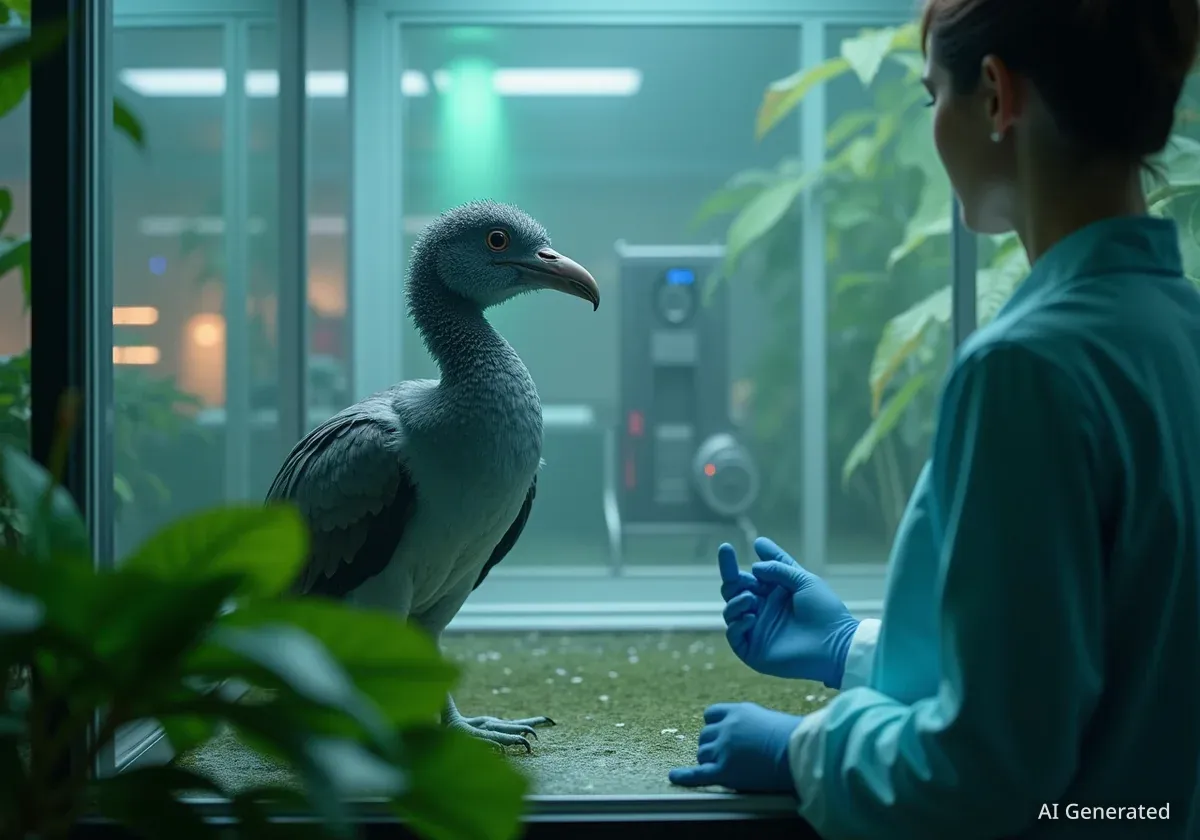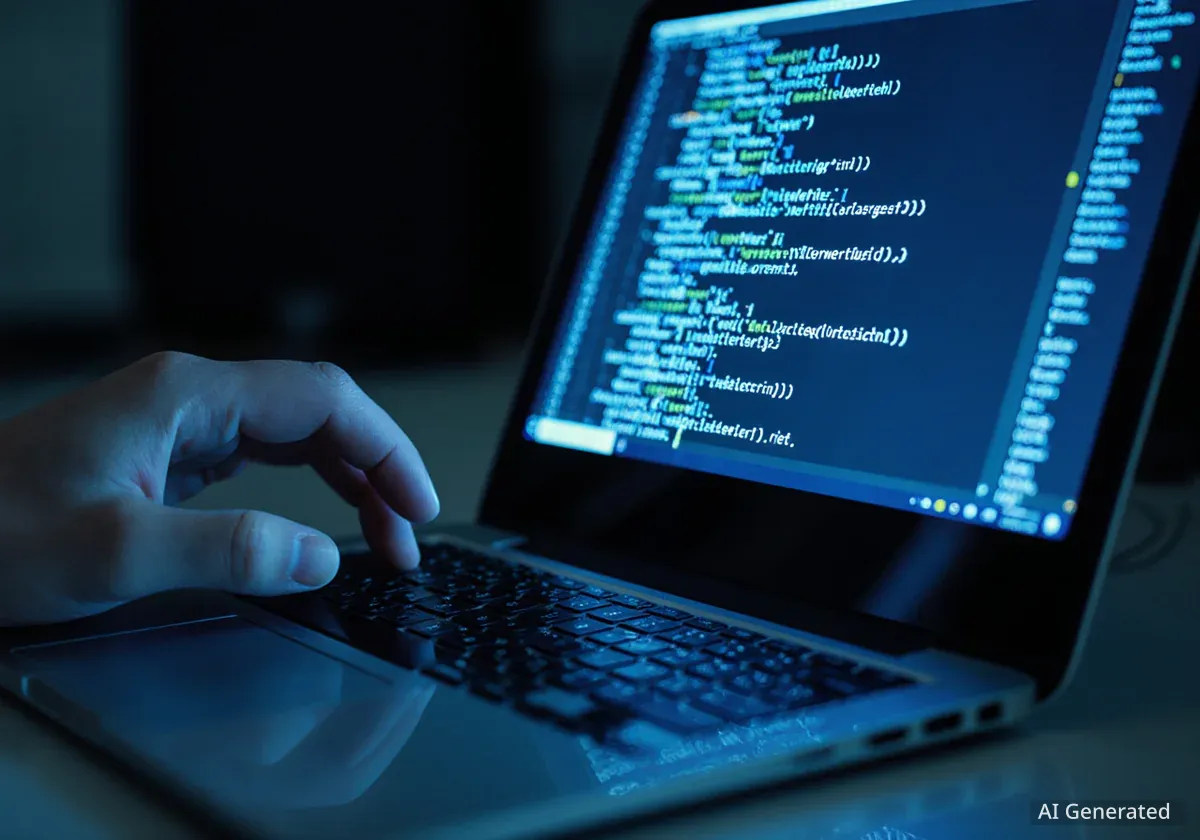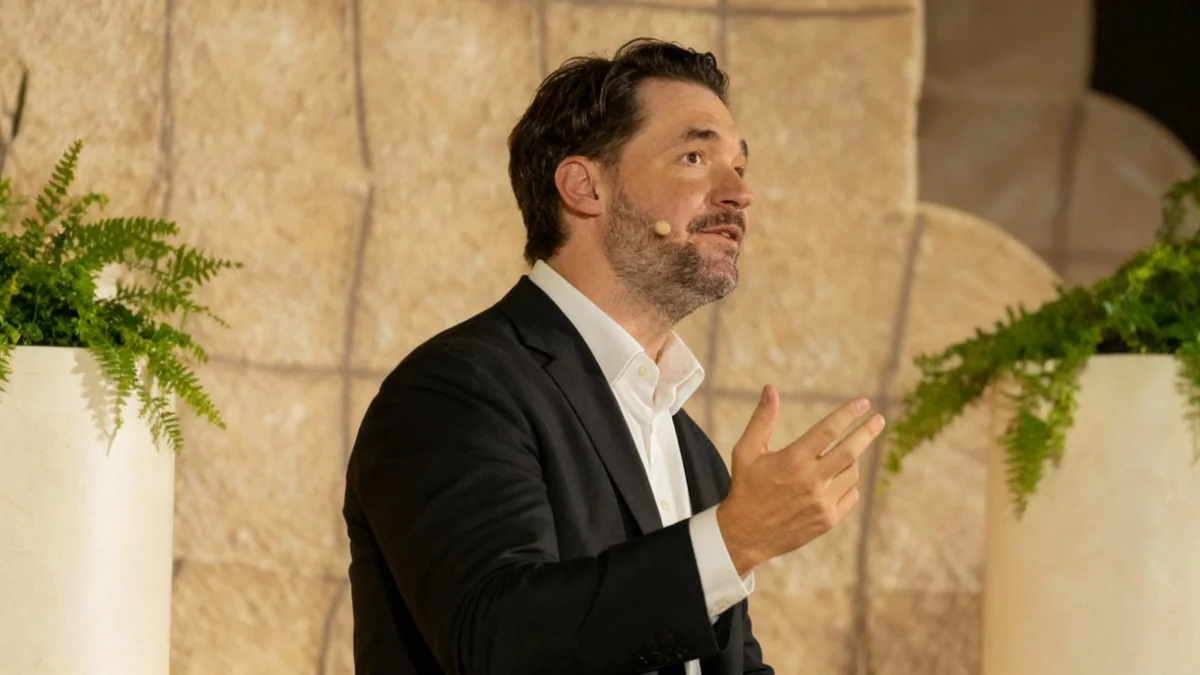A recent survey reveals that only 15% of Americans believe the United States will be the leading power in artificial intelligence within the next decade. This public sentiment contrasts sharply with major advancements in other technology sectors, including a significant step forward in the effort to revive the extinct dodo bird.
The findings from Gallup and the Special Competitive Studies Project highlight a gap between technological progress and public confidence, while new data from AI companies Anthropic and OpenAI sheds light on how these tools are being used globally, revealing potential economic divides.
Key Takeaways
- Only 15% of Americans are confident the U.S. will lead in AI in ten years, a significant drop from the optimism seen during the 1960s space race.
- AI usage data shows OpenAI's ChatGPT is primarily used for information retrieval, while Anthropic's Claude is used for technical tasks like coding.
- Biotechnology firm Colossal Biosciences has successfully cultured primordial germ cells of the dodo's closest relative, a critical step toward de-extinction.
- Colossal also announced $120 million in new funding, raising its valuation to $10.3 billion, following the birth of two dire wolves.
Public Confidence in US AI Leadership Falters
A new poll conducted by Gallup in partnership with the Special Competitive Studies Project indicates a notable lack of public optimism regarding America's future in artificial intelligence. The survey found that just 15% of Americans are confident the U.S. will possess the most advanced AI technology in a decade, particularly as competition with China intensifies.
This sentiment stands in stark contrast to historical precedents. During the space race with Russia in the 1960s, a period of similar national and technological focus, public confidence was significantly higher. According to historical data, nearly half of all Americans in 1965 believed the U.S. was ahead of Russia in space exploration.
A Shift in National Optimism
The comparison to the space race era highlights a change in public perception. Six decades ago, technological competition was a source of national pride and unity. Today, the rapid, complex, and often opaque development of AI appears to be generating more uncertainty than confidence among the general population.
Global AI Usage Reveals Diverging Patterns
As public opinion is measured, technology companies are releasing detailed reports on how their AI models are being used. Recent data from OpenAI and Anthropic provides a clear picture of user behavior, revealing different primary functions for their flagship products, ChatGPT and Claude.
ChatGPT as an Information Tool
According to OpenAI, its ChatGPT model is most frequently used as a sophisticated search engine. Approximately 18% of all queries involve users seeking specific information. In contrast, technical tasks such as coding assistance account for less than 8% of its total usage. Other popular applications include help with teaching and writing.
"This widening adoption underscores our belief that access to AI should be treated as a basic right—a technology that people can access to unlock their potential and shape their own future," OpenAI stated in a recent blog post.
Claude's Focus on Technical Tasks
Anthropic's report shows a different trend for its model, Claude. Computer and mathematical tasks, including coding, dominate its use, making up 36% of all interactions. This suggests a more specialized user base focused on technical and professional applications.
The Emerging AI Divide
Anthropic's data also points to a potential economic and geographical divide in AI adoption. Usage of Claude is heavily concentrated in high-income nations and technology hubs. The United States leads in usage, with significant activity in California, New York, and Virginia. Globally, tech-focused countries like Israel and Singapore also show strong adoption rates relative to their populations.
Anthropic acknowledged this pattern in its report, stating, "It takes time for transformative technology to reach everyone, and AI is no different." This concentration raises questions about equitable access and whether AI could widen existing economic disparities.
Breakthrough in De-Extinction Technology
While the AI sector grapples with public perception and usage patterns, genetic engineering is achieving tangible and historic milestones. Colossal Biosciences, a company dedicated to reviving extinct species, announced a major breakthrough in its project to bring back the dodo bird.
Reviving the Dodo Bird
Scientists at Colossal have successfully cultured primordial germ cells (PGCs) from the Nicobar pigeon, the dodo's closest living relative. PGCs are the precursor cells that develop into sperm and eggs. This achievement is a critical step toward the de-extinction of the dodo, which has been extinct for over 360 years.
The process involved testing over 300 different combinations of growth factors to successfully cultivate the cells. The next phase of the project involves injecting these engineered cells into the embryos of genetically modified chickens. The goal is for these chickens to eventually lay eggs containing the genetic material of the Nicobar pigeon, paving the way for hatching a close relative of the dodo and, ultimately, the dodo itself.
Colossal's Continued Success and Growth
- Dire Wolves: The dodo project news follows the successful births of two dire wolf pups in April, a species extinct for 10,000 years.
- New Funding: Colossal also announced it has secured an additional $120 million in funding.
- Valuation: This new investment brings the company's total valuation to $10.3 billion.
These parallel developments in AI and biotechnology showcase a technological landscape marked by both societal uncertainty and groundbreaking scientific progress. While public confidence in future AI dominance is low, advancements in genetic engineering are turning science fiction into reality, raising a different set of ethical and practical questions for the future.





